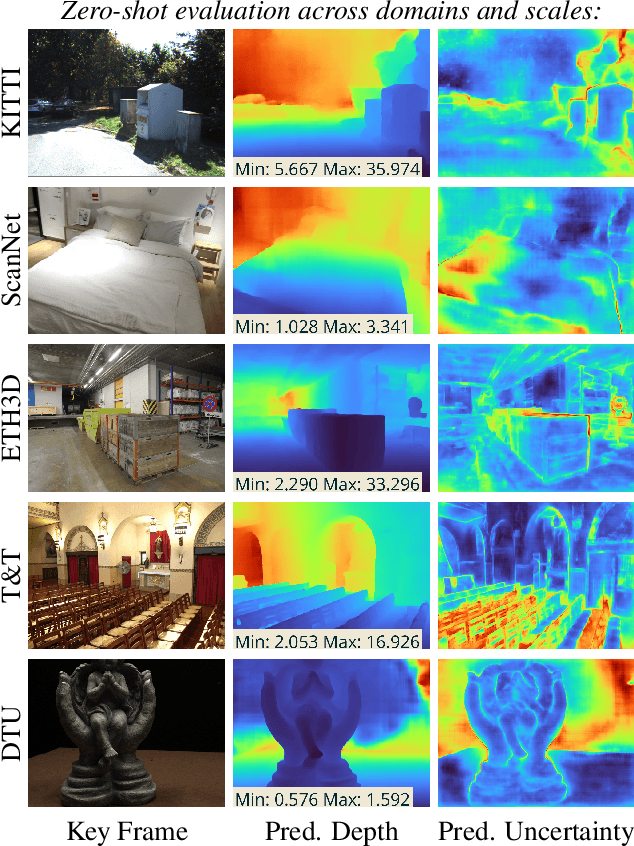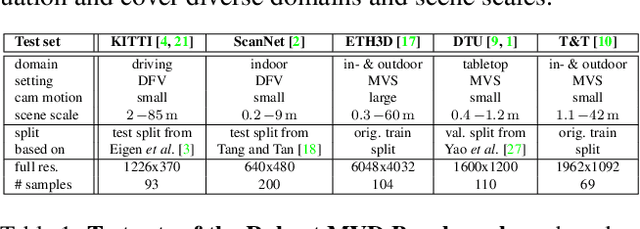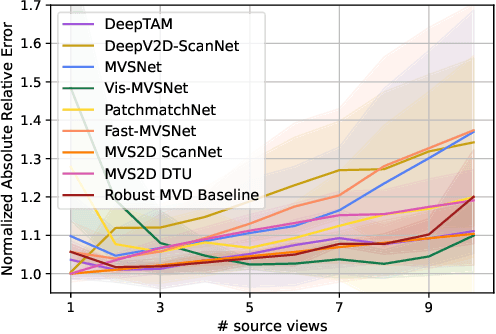Jan Bechtold
A Benchmark and a Baseline for Robust Multi-view Depth Estimation
Sep 13, 2022



Abstract:Recent deep learning approaches for multi-view depth estimation are employed either in a depth-from-video or a multi-view stereo setting. Despite different settings, these approaches are technically similar: they correlate multiple source views with a keyview to estimate a depth map for the keyview. In this work, we introduce the Robust Multi-View Depth Benchmark that is built upon a set of public datasets and allows evaluation in both settings on data from different domains. We evaluate recent approaches and find imbalanced performances across domains. Further, we consider a third setting, where camera poses are available and the objective is to estimate the corresponding depth maps with their correct scale. We show that recent approaches do not generalize across datasets in this setting. This is because their cost volume output runs out of distribution. To resolve this, we present the Robust MVD Baseline model for multi-view depth estimation, which is built upon existing components but employs a novel scale augmentation procedure. It can be applied for robust multi-view depth estimation, independent of the target data. We provide code for the proposed benchmark and baseline model at https://github.com/lmb-freiburg/robustmvd.
Fostering Generalization in Single-view 3D Reconstruction by Learning a Hierarchy of Local and Global Shape Priors
Apr 01, 2021



Abstract:Single-view 3D object reconstruction has seen much progress, yet methods still struggle generalizing to novel shapes unseen during training. Common approaches predominantly rely on learned global shape priors and, hence, disregard detailed local observations. In this work, we address this issue by learning a hierarchy of priors at different levels of locality from ground truth input depth maps. We argue that exploiting local priors allows our method to efficiently use input observations, thus improving generalization in visible areas of novel shapes. At the same time, the combination of local and global priors enables meaningful hallucination of unobserved parts resulting in consistent 3D shapes. We show that the hierarchical approach generalizes much better than the global approach. It generalizes not only between different instances of a class but also across classes and to unseen arrangements of objects.
 Add to Chrome
Add to Chrome Add to Firefox
Add to Firefox Add to Edge
Add to Edge